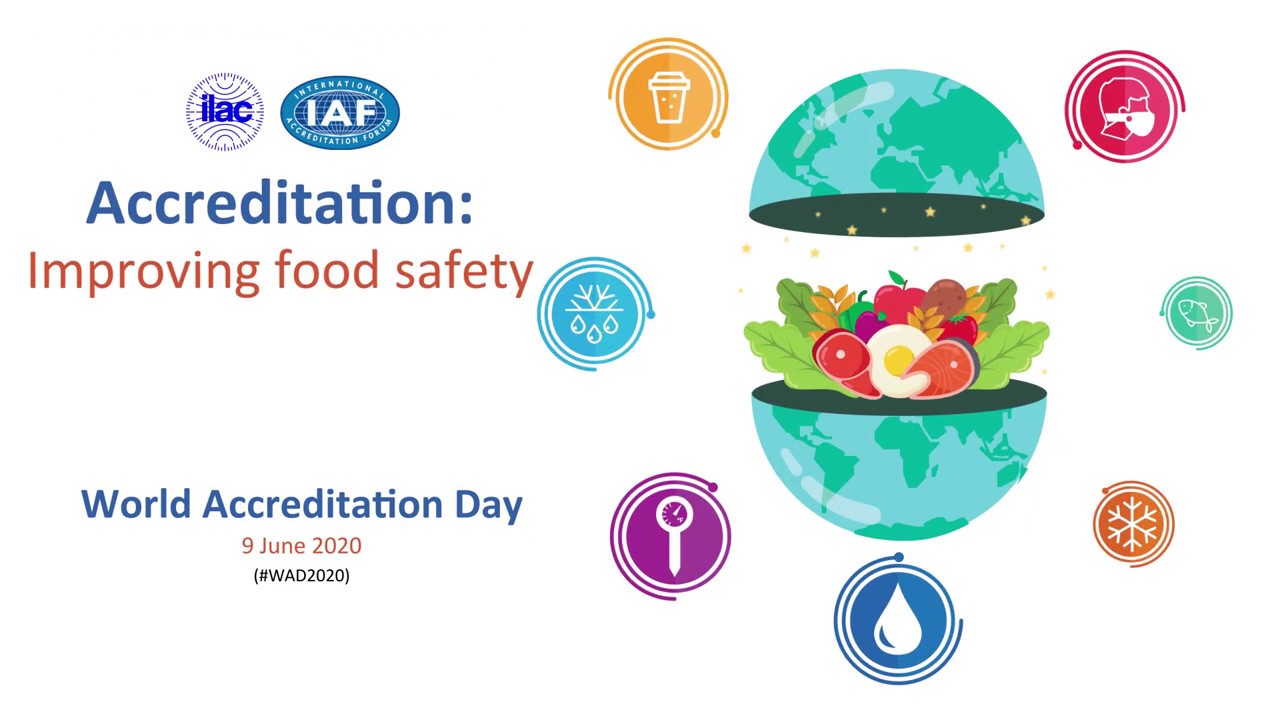
Paul Greenwood – UKAS Operations Director
About World Accreditation day
World Accreditation Day, which takes place annually on 9th June, has become an important fixture in the calendar to promote the value of accreditation, accredited conformity assessment and standards. This global initiative established by ILAC and IAF is celebrated in over 100 economies to promote and raise awareness of the value that accreditation delivers across different industries.
For consumers around the world, access to safe and nutritious food is an essential requirement for maintaining their overall health and well-being. The term ‘food safety’ describes all practices that are used to keep our food safe and relies on all those involved in the supply of food, from farmers and producers to retailers and caterers. Accredited conformity assessment activities contribute to the prevention and treatment of the adverse effects of unsafe and adulterated food.
Accreditation covers a range of laboratories, certification and inspection bodies, proficiency testing providers and reference material producers to ensure public safety throughout the food supply chain. Food and water safety are part of our everyday lives and accreditation ensures that consumers, suppliers, purchasers and specifiers can have confidence in the quality and safety of the goods and services they receive and most importantly, be assured these products are safe for consumption.
So, what is the contribution of accreditation to food safety? It helps in the fight against foodborne diseases, is key to decreasing food poisoning (chemical, microbiological, parasitological, etc.) as well as improving wellbeing through improved nutrition, all of which ultimately lead to cost savings in patient care expenses.
Improvement in food safety can be achieved by accreditation of testing laboratories, performing analyses in the food chain, and by application of several accredited certification schemes based on HACCP (Hazard Analysis and Critical Control Point), international standards such as ISO 22000 (Food Safety Management Systems) and others widely implemented at global level.
Accreditation of testing laboratories and organisations delivering certification increases the confidence in the sustainable quality of food products and ensures that appropriate decisions and practices, supervised by National Accreditation Bodies, are followed in the food production supply chain. Product certifications are easily identifiable by the logos applied directly onto products and can often serve as an immediate reassurance to consumers.
There are various European legislations which make use of accreditation as the preferred means to demonstrate the competence of laboratories and certification bodies in order to ensure compliance with EU food safety requirements.
Examples are:
- Regulation (EU) 2017/625 on official controls and other official activities performed to ensure the application of food and feed law, rules on animal health and welfare, plant health and plant protection products;
- Regulation (EU) No 1151/2012 on quality schemes for agricultural products and foodstuffs;
- Commission Regulation (EU) 2017/644 laying down methods of sampling and analysis for the control of levels of dioxins, dioxin-like PCBs and non-dioxin-like PCBs in certain foodstuffs;
- Commission Regulation (EC) No 566/2008 laying down detailed rules for the application of Council Regulation (EC) No 1234/2007 as regards the marketing of the meat of bovine animals aged 12 months or less;
Additionally, there are more than ten European legislations in the feed and agriculture sector that prescribe the use of accreditation (see EA-INF/05 Directory of European legislations and EU schemes with provisions to accreditation and/or conformity assessment).
Publicity
In addition to a video (https://youtu.be/B1rKwVClahw), the following material has been produced by IAF/ILAC for accredited organisations to use in their communication and promotional campaigns:
- A joint statement released by the IAF and ILAC Chairs, which introduces the importance of accreditation in food safety, noting how it ensures competent and impartial inspection, certification and testing services in every part of local, national and international food chains. In doing so, accreditation supports the United Nations’ Sustainable Development Goals (SDGs) and, in particular, Good Health and Well-being (SDG 3).
- IAF and ILAC have also produced a brochure and poster to highlight worldwide examples of the role accreditation plays in food safety; further examples and research are available on the Public Sector Assurance and Business Benefits websites. You are welcome you to add your logo to these materials, and to encourage your customers and stakeholders to do the same.
The day was marked globally with Webinars with leading experts in the food safety industry, customer presentations (SGS for example – https://youtu.be/CAT2nZXy8PM), and even a quarantine cookbook produced by our colleagues at ANAB.

